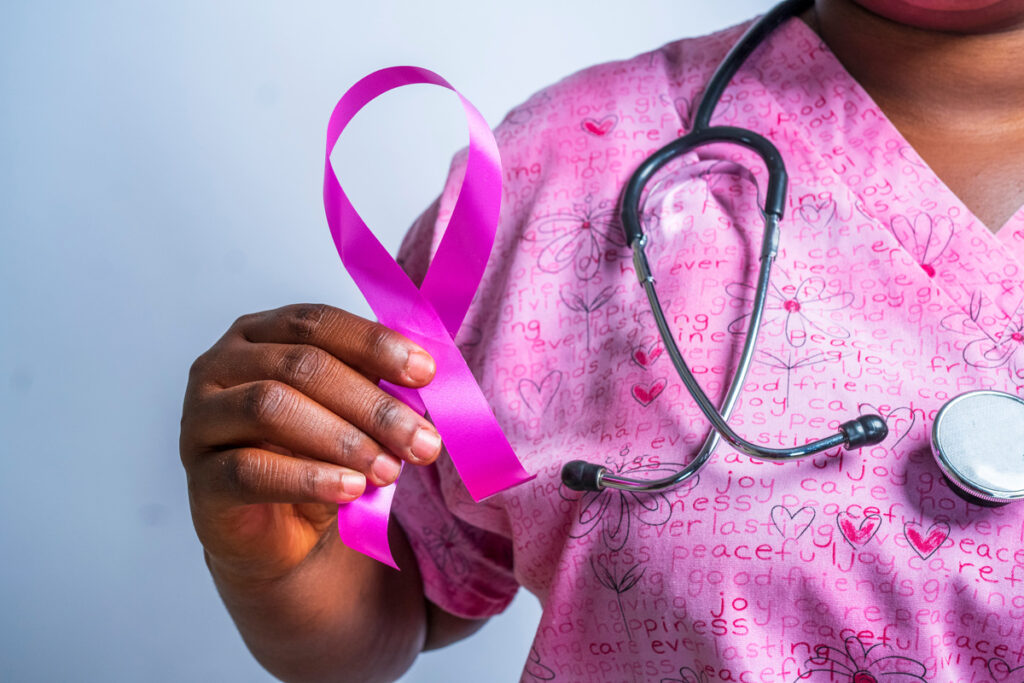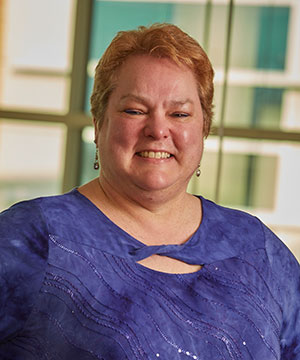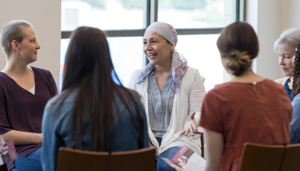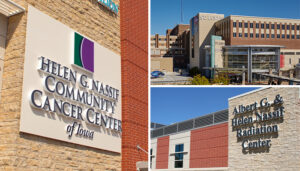A woman’s breast cancer journey often starts with her primary care provider
For many women, a breast cancer diagnosis often begins with a visit to her family doctor.
“A baseline mammogram and a clinical breast exam are part of the annual well-woman visit, usually beginning at age 40,” explains Ann Metzger, MD, a physician with UnityPoint Clinic® Family Medicine in Marion. “Fortunately we have 3D mammography right here in Marion, which is helping us detect cancer sooner.”
If an abnormality is found during the annual exam, a breast care coordinator reaches out to the patient. “The coordinators are excellent,” says Dr. Metzger. “From the very beginning, they make sure the patient understands each step of the journey.”
St. Luke’s Breast Care Coordinator Mona Cook explains, “We schedule ultrasounds, biopsies, whatever is needed. If tests show the patient does have cancer, we talk about what type it is, because there are several types of breast cancer. Then we try to calm their fears and see what questions they have.” Adds Cook with a smile, “I tell patients my job is to take away the deer-in-the-headlights look.”
Cook also lets patients know they won’t be making their cancer journey alone, assuring them, “The Nassif Community Cancer Center has a whole team waiting to meet you.” Because all services from diagnostic testing to cancer specialists, chemotherapy, radiation therapy, and wellness programs are conveniently located in the Physicians’ Clinic of Iowa Medical Pavilion, team members work closely together to meet each patient’s individual needs.
The care coordinators take care of referrals within the team. They also connect patients and their family caregivers with free support services through the Cook Cancer Wellness Program. Says Mona Cook, “Cancer affects not just the physical body but the emotional, psychosocial and spiritual body as well. We offer resources for the whole person, from cooking classes to holistic therapies, creative art programs, and exercise classes we call moving support groups.”
Adds Dr. Metzger, “We’re very fortunate to have such excellent cancer services from diagnosis through recovery. I recommend Nassif Community Cancer Center highly.” While Dr. Metzger is not directly involved in her patients’ cancer care, she keeps up with their progress through reports from specialists and the coordinators. “It might be a year before I see the patient again because they’re tied up with cancer treatment. But I’m able to see what’s going on with them at all times.”
That’s important, says Mona Cook. “Your primary care provider will be there for you long after you complete your cancer treatment. She needs to know what the plan is now so she can continue to direct your care in the future. That collaborative approach is how we keep the patient at the center of all we do.”








